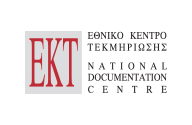Personhood
Synopsis
The motives for bringing about the Hellenic-Serbian Dialogue Series originate from the sentiment that mutual relations between Greeks and Sebs far surpass the cultural exchange between Greece and Serbia. Knowing that cooperation does not simply fall into one’s lap, but must be initiated by human will and energy, a group of philosophers from Athens and Novi Sad, the proverbial “Athens of Serbia,” committed themselves to improving this state of affairs, at least within the confines of their area of expertise, philosophy. It is our firm intent to carry out the promise of the title of this series in the following years. Apart from mere cooperation between our two institutions, our aim is also to facilitate an international dialogue that would involve a wide range of thinkers, regardless of their place of employment. The topic of this second volume is personhood, which was spurred on by the need to investigate the condition of humanity in the twenty-first century. With this second volume of the Hellenic-Serbian Philosophical Dialogue Series we have done our best to produce a rich, multi-faceted, broadly scoped, and inspiring book; we wish it becomes for the reader the ideal vehicle for an intellectually stimulating journey.
Chapters
-
Frontmatter
-
Introduction
-
Byzantine Philosophy, Personhood, and Philosophical Language
-
St. Augustine on Memory and Personhood
-
The ‘Identity Doesn’t Matter to Morality’ View: Unconditional Third-Person Ascription of Personhood in Kant and Wittgenstein
-
The Phenomenological Understanding of the Person: Nietzsche in Husserl’s Shadow
-
Self, Personality and Consciousness: Could Hellenistic Philosophical Approaches Have a Place in Modern Neuroscientific Research?
-
Personification: A Category Mistake or a Categorial Novum?
-
Licensed to Kill: Autonomous Weapons as Persons and Moral Agents
-
Sartre and Personhood
-
Bioethics and the Person
-
Backmatter

This work is licensed under a Creative Commons Attribution 4.0 International License.




